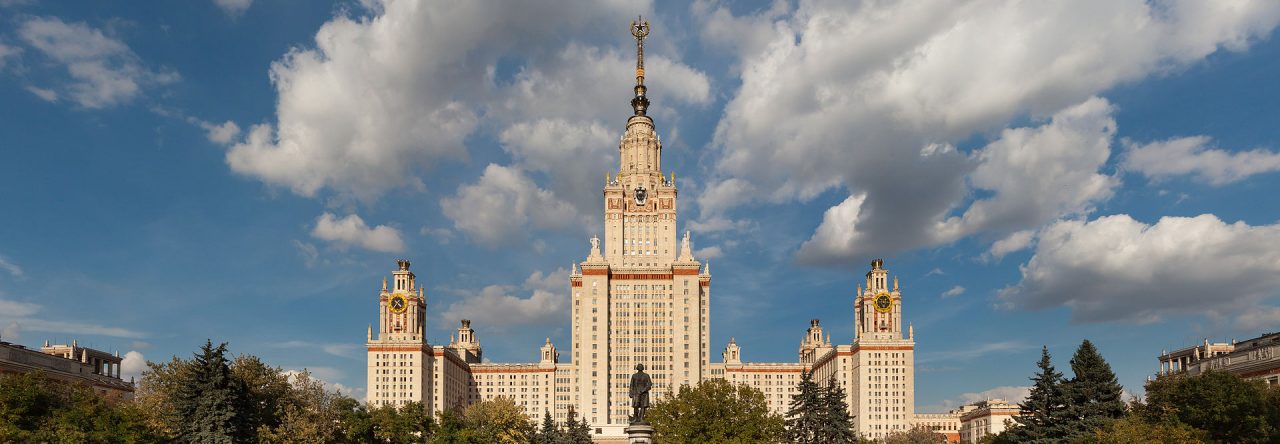Russia actively participates in international mega-science projects in different countries. Russian scientists and equipment can be found in many largest scientific projects in the world, such as CERN located in Switzerland or Italy’s Borexino. Today Russia is aimed to development its own top-class research facilities: 625 million rubles will be allocated on the national project „Science“. For instance the funding will be submitted to the Pacific Quantum Center, which is to be created on the basis of the Far Eastern Federal University. FEFU will receive money for the creation of a physics center as a grant, which they won in scientific activity of the Ministry of Education and Science. Funding of 36 million rubles per year is to be provided until 2023. In addition to specialists from Vladivostok, scientists from Russia, Europe, and the Asia-Pacific region will be invited to cooperate. Center staff will be able to use unique equipment and for research using high-performance computing, machine learning, and digital twins. They will be able to use the FEFU supercomputer. For this, the power of its calculations – 26 teraflops (One teraflop – a trillion operations per second) – will be tripled.
“We expect to discover physical principles on the basis of which we will be able to create materials with fundamentally new properties: high-temperature superconductors, quantum materials for qubits, etc. The center’s research will have a huge impact on technology and applied science in the coming decades, including potential applications in areas ranging from terahertz electronics, high-speed transistors, and fault-tolerant quantum computing to new technologies for energy sources and storage, as well as fundamentally new materials and nanostructures with controlled properties „, – notes Alexander Molochkov, Head of the Center for Chiral Biophotonics and the Pacific Quantum Center, Head of the Laboratory of Physics of Living Matter at the School of Biomedicine, FEFU. Scientists at the Pacific Quantum Center will study the most pressing issues of fundamental physics today. The priority topics of the specialists of the center will be Weyl and Dirac semimetals, the study of which will make it possible to create an element base for quantum computers. Physicists also plan to study processes in the structure of long protein molecules. Knowing which parts of the protein are responsible for different activities will help find remedies for Alzheimer’s, Parkinson’s, Creutzfeldt-Jakob diseases, type 2 diabetes and many types of cancer. Together with colleagues from the NICA project, the center intends to study – the state in which matter was in the first moments after the formation of the Universe.
The Institute of Theoretical and Experimental Physics named after A.I. Alikhanov (ITEP, NRC „Kurchatov Institute“), University of Tours (CNRS, France), NORDITA Research Institute (Sweden), Stockholm University and AlbaNova Center (Sweden), RIKEN and Osaka University (Japan). However, work on the creation of mega-science projects will not start from scratch in our country. Installations of this level are already operating in Russia. Some of the experiments are being carried out at the universities of Project 5-100. For example, a unique scientific „Experimental complex NEVOD“ operates at NRNU MEPhI, which allows fundamental (particle physics and astrophysics) and applied (monitoring and forecasting the state of near-earth space) research using natural particle fluxes on the Earth’s surface. NEVOD includes seven independent detectors that have no analogues in the world. The installation is located on the Kashirskoye highway in Moscow.
Now MEPhI is busy with the construction of another detector, which was named „TRACK“. Due to the detector, physicists will be able to study the groups of muons generated by ultrahigh-energy cosmic rays at large zenith angles. The installation will include 264 drift chambers of the IHEP neutrino detector and will consist of two coordinate planes with an area of 254 m2 installed vertically next to the NEVOD water detector and completely covering its lateral aperture. In modern conditions, significant scientific discoveries require the consolidation of technological, intellectual, and financial resources of many countries of the world. Having its own mega-science infrastructure will allow Russia to count on unhindered access to the research results of an international team of the world’s strongest scientists. Relatively small equipment costs will be returned by new technologies that will be created on the basis of fundamental knowledge. Due to this, in the future, Russia will have a chance to build an innovative economy, create new jobs, and attract foreign investment.


Comments are closed.